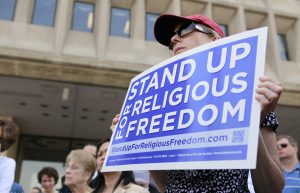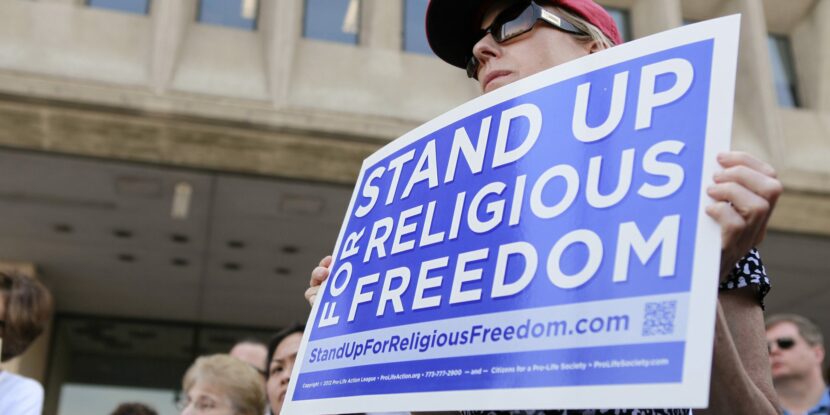
Christian colleges in California may be breathing a sigh of relief this week, but elsewhere across the country, the fight to defend religious liberty in education is just beginning.
The latest salvo was fired yesterday by the editorial board of The Charlotte Observer, which argued that schools which enforce traditional Christian sexual mores in their codes of conduct should be forbidden to receive state funds through North Carolina’s Opportunity Scholarships voucher program.
According to the Observer, the discriminatory nature of such rules ought to disqualify these schools from receiving any kind of state support:
Here’s a quick lesson in Government Fairness 101:
Ready?
Don’t tax people for a government service, then tell them they can’t have the service. If you’re trying to imagine the most infuriating thing a government official could ever say to you, try this one on for size:
“Your family’s money is welcome here, but your kids aren’t.”
Isn’t that what the North Carolina legislature and private religious schools are saying to gay, lesbian and transgender children’s families?
This line of argument is flawed for a couple of reasons.
Firstly, schools that receive state funds can discriminate for all sorts of reasons. For example, it is almost certainly the case that most, if not all, private schools admit some students, but not others, based on their grades, or extracurricular activities, or disciplinary records, etc.
Would the Observer argue that such schools are telling the families of students with poor grades or bad records of misconduct that they “can’t have the service” they are being taxed for? If private schools are not allowed some level of control over who attends, then what would be the point of their being private?
So the Observer would seem to have an issue with a particular type of discrimination: that of refusing to admit students who believe in identifying with and practicing a lifestyle contrary to the moral code of certain religious faiths. But what would be the point of founding a religious school if one could not require its attendees to adhere to at least a minimal set of standards relating to the faith?
As Oklahoma Baptist University professor Alan Noble recently argued in The Atlantic, responding to the aforementioned California bill:
The [Title IX] exemptions allow religious schools to cultivate communities consistent with some of their core beliefs. The Christian understanding of marriage is not a fringe view taken by a few churches in the United States. In the Catholic and Orthodox traditions, marriage between men and women is a sacrament. For conservative evangelicals, it is instituted in the sacred scriptures by Christ himself and has been taught by the church for thousands of years.
The Observer notes in passing that the North Carolina Supreme Court declined to strike down the Opportunity Scholarship program on the grounds that it discriminates on the basis of religion. This being the case, it would make little sense for the Court to do so now on the grounds that eligible schools require their students to live according to basic, established moral principles of the schools’ religious traditions.
Given the good education religious schools provide, it makes perfect sense that North Carolina, California, and other states would want to help students attend who would otherwise for financial reasons be unable to do so. Just because traditional Christian (and Jewish, and Muslim) teaching on sexuality is presently unpopular among our social elites is not enough reason to justify ending this assistance altogether.
But for the totalitarian left, any deviation from the new sexual orthodoxy constitutes an intolerable infringement upon human rights. Thus, the fight goes on.
Paul Dupont is the managing editor for ThePulse2016.com.


